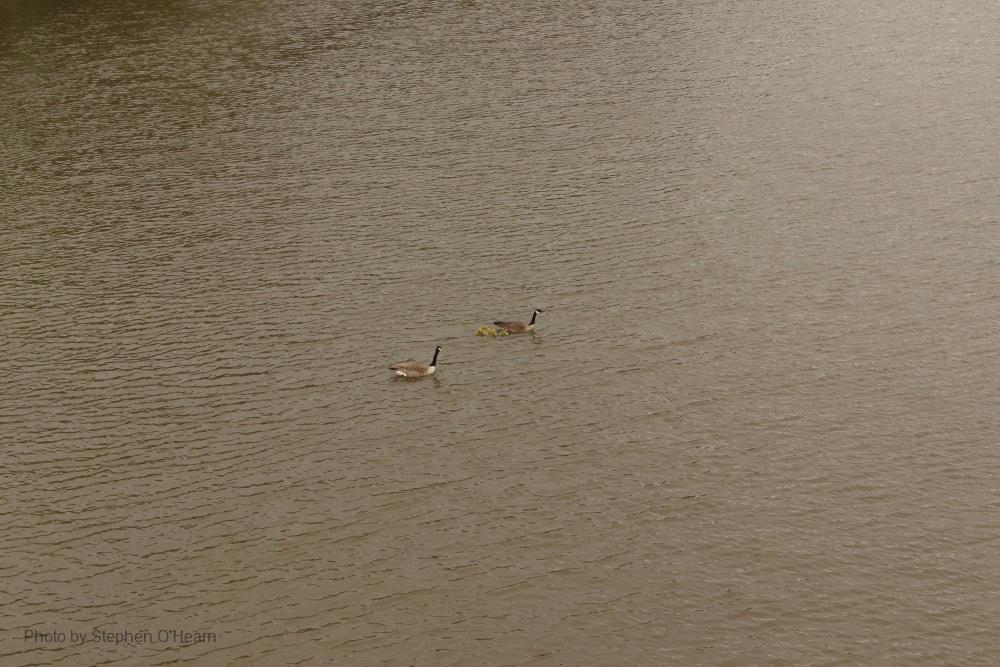
Related items loading ...
Section 1: Publication
Publication Type
Conference Presentation
Authorship
Imran Arisha, Neary Laura, Wolfe Brent, Hall Roland
Title
Assessing the legacy effects of large-scale flooding in 2020 on hydro-limnological conditions of lakes in the Peace-Athabasca Delta (Alberta, Canada)
Year
2022
Publication Outlet
AOSM2022
DOI
ISBN
ISSN
Citation
Arisha Imran, Laura Neary, Brent Wolfe, Roland Hall (2022). Assessing the legacy effects of large-scale flooding in 2020 on hydro-limnological conditions of lakes in the Peace-Athabasca Delta (Alberta, Canada). Proceedings of the GWF Annual Open Science Meeting, May 16-18, 2022.
Abstract
Monitoring hydrological processes in remote, northern landscapes is challenging, but necessary as climate change and anthropogenic stressors continue to threaten security of water supply. The Peace-Athabasca Delta (PAD) is a northern freshwater floodplain and Ramsar Wetland of International Importance within Wood Buffalo National Park (WBNP; Alberta) where concerns have grown about lake drying in recent decades. The PAD contains hundreds of shallow lakes and wetlands that provide important habitat for local and migratory fauna. In response to concerns raised by indigenous communities, federal and international agencies have recommended the development and implementation of an aquatic monitoring program capable of tracking changes in water levels and water quality, and the processes responsible. This recommendation led to the development and execution of the WBNP Action Plan which outlined specific actions to protect the Outstanding Universal Value of WBNP. Goals of the Action plan include to enhance monitoring and improve the assessment of current and future water quantity conditions. Our team launched a 5-year research program (2015-2019) to develop a monitoring framework for aquatic ecosystems in the PAD. Repeated sampling of the 60 lakes (in spring, mid-summer and fall) has been continued since 2019 by WBNP staff and other stakeholders under the WBNP Action Plan. The lakes are sampled for water isotope composition and water chemistry (pH, alkalinity, and concentrations of major nutrients, DSi, DIC, DOC, major ions), and loggers are deployed to obtain hourly lake-depth measurements. Results from 2020 show strongly positive lake water balances persisted across the landscape due to input of floodwaters and above-average rainfall, which contrasts to most of the previous 5 years when evaporation strongly influenced water balance of many lakes. Water isotope composition indicates wet conditions and correspondingly low influence of evaporation persisted in 2021, despite above average temperatures. Isotope-mass balance models, multivariate analysis, and geospatial interpolation techniques will be used to characterize spatial and temporal patterns in hydrological and limnological conditions. Continued monitoring of the physical and chemical conditions of the lakes one year after the 2020 flooding will improve our understanding of the relationships between hydrological processes and water quality of lakes within the PAD.
Plain Language Summary
This research aligns with GWF goals as it progresses towards hydrological monitoring of freshwater resources in a northern landscape. The approach I’m using has the potential to serve as a model for other northern protected areas in Canada or other areas of the world rich in freshwater. My research contributes to this broader application of hydro-limnological approaches for aquatic ecosystem monitoring in northern, protected freshwater landscapes as it follows work done previously by the Hall/Wolfe research group in the Old Crow Flats (Vuntut National Park; Yukon).
Section 2: Additional Information
Program Affiliations
Project Affiliations
Submitters
|
Arisha Imran | Submitter/Presenter | a7imran@uwaterloo.ca | University of Waterloo |
Publication Stage
N/A
Theme
Water Quality and Aquatic Ecosystems
Presentation Format
10-minute oral presentation
Additional Information
AOSM2022 First Author: Arisha Imran, University of Waterloo Additional Authors: Laura Neary, University of Waterloo; Brent Wolfe, Wilfrid Laurier University; Roland Hall, University of Waterloo


 GWFNet
GWFNet Master
Master Data
Data Research
Research Map
Map
 Advanced
Advanced Tools
Tools
 . . .
. . .
 Metadata Editor
Metadata Editor
 Record List
Record List
 Alias List Editor
Alias List Editor
 Legacy sites
Legacy sites